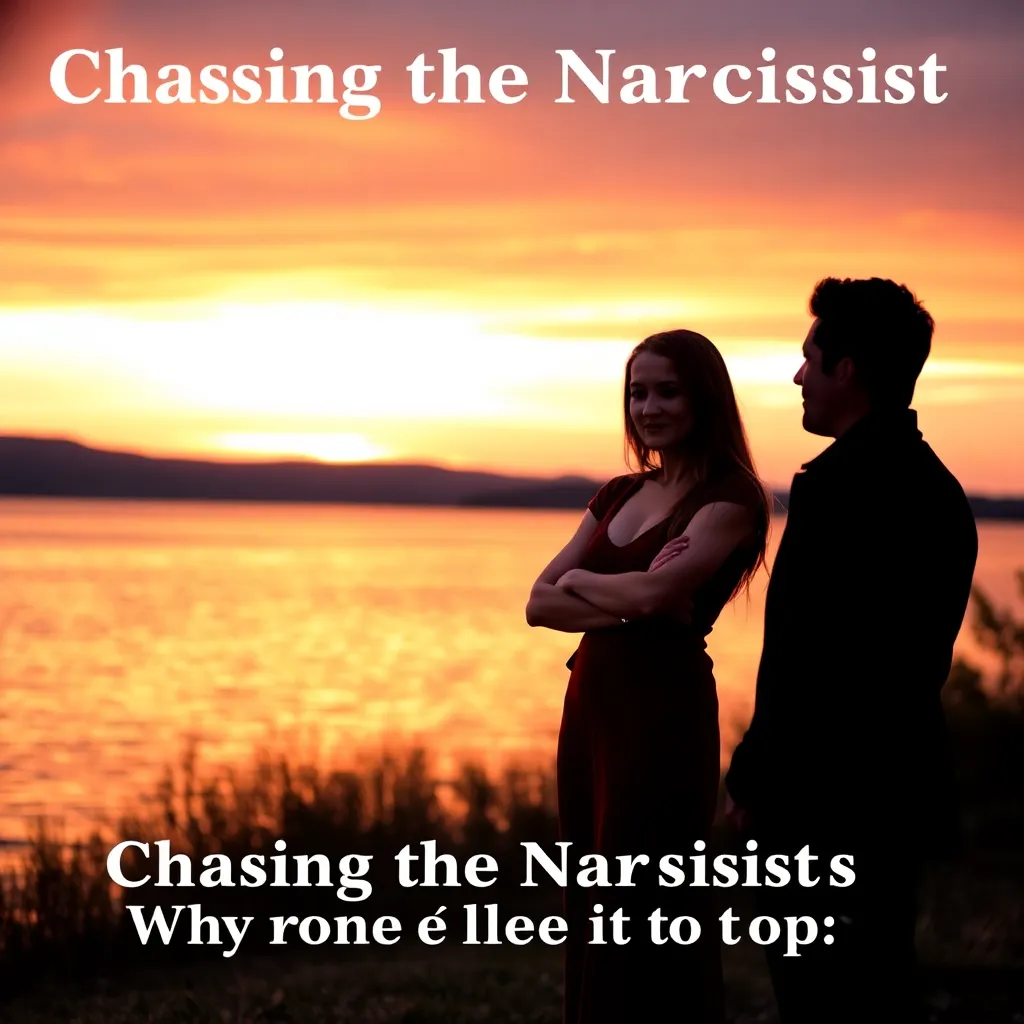Navigating the complexities of a relationship with a narcissist can feel like an emotional labyrinth, one where you might often find yourself lost and exhausted. It’s a journey that can leave you questioning your worth, your choices, and your reality. Understanding why you are drawn to chase the narcissist is crucial, not just for your emotional well-being, but for reclaiming your own narrative. Many find themselves trapped in a cycle of seeking validation from someone who seems to thrive on withholding it, leading to a painful and unending pursuit.
In this article, we will explore the emotional and psychological reasons why stopping this chase is essential for your mental health and personal growth. You will gain insights into the dynamics of narcissistic relationships and learn practical steps to break free from this toxic pattern. The goal is to provide you with the tools and understanding needed to prioritize your happiness and self-worth. As you embark on this journey of self-discovery and healing, know that change is possible, and a healthier, more fulfilling life awaits you.
1. Recognizing Narcissistic Traits

When it comes to recognizing a narcissist, the first step is to understand their defining traits. A narcissist often exhibits an exaggerated sense of self-importance and a desperate need for admiration, which can be subtle yet pervasive in a relationship.
Consider a partner who constantly turns conversations back to themselves, showcasing a lack of genuine interest in your feelings or achievements. This behavior can make you feel unseen and unheard, leaving you questioning your own worth in the relationship.
Experts suggest that narcissists may display little to no empathy, making it challenging for them to connect emotionally with others. This can lead to a one-sided relationship where your emotional needs are frequently overlooked or dismissed.
In a practical sense, if you find yourself constantly walking on eggshells around your partner, it might be a sign of their need to dominate the emotional landscape. Instead of fostering mutual respect and understanding, a narcissistic relationship often thrives on control and manipulation.
Recognizing these traits early on can empower you to make informed decisions about your emotional wellbeing. Remember, the key takeaway is to prioritize your happiness and security, ensuring you’re in a relationship that nurtures rather than diminishes you.
2. The Emotional Toll of Chasing

In relationships with a narcissist, the emotional toll can be profound and pervasive. Many find themselves in a cycle of seeking approval and validation that feels increasingly out of reach. This constant pursuit leaves individuals feeling drained and emotionally exhausted. Imagine always walking on eggshells, trying to avoid conflict yet never feeling truly valued.
One real-world scenario involves a partner who endlessly tries to please their narcissistic counterpart, only to be met with criticism and indifference. Over time, this erodes self-esteem and creates a sense of inadequacy. The emotional investment rarely, if ever, yields the reciprocal love and support one hopes for.
Experts suggest that such relationships often involve a distorted sense of reality. You’re led to believe that if you just try harder, things will change, but the truth is, the goalposts are always moving. This unending chase can lead to chronic stress and anxiety, impacting not only your mental health but also your physical well-being.
Ultimately, the key takeaway is understanding that your worth is not defined by someone else’s approval. By acknowledging and addressing the emotional toll, you empower yourself to seek healthier, more fulfilling connections. Letting go of the chase opens up possibilities for genuine, supportive relationships where mutual respect and love thrive.
3. Breaking the Cycle of Pursuit

Breaking free from the cycle of pursuit with a narcissist requires a conscious decision to reclaim your own sense of self-worth. Often, the pattern of chasing can feel like a relentless dance, where you give and give, yet receive little in return.
One relatable scenario is when you find yourself constantly waiting for their validation, which never seems to come. This cycle can feel like a never-ending loop, leaving you emotionally drained and questioning your own value.
Experts suggest that shifting your focus from the narcissist to your own needs is crucial. By prioritizing your own well-being and happiness, you begin to break the unhealthy attachment that keeps you in pursuit.
Consider engaging in activities that nurture your self-esteem and provide genuine joy. This could mean spending time with supportive friends or pursuing a hobby that makes you feel alive and valued.
Ultimately, breaking the cycle of pursuit is about rediscovering your own strength and autonomy. By taking these steps, you reclaim not just your life, but also the inner peace that comes with it.
4. Reclaiming Your Self-Worth

Understanding your own value is crucial in freeing yourself from the cycle of chasing a narcissist. You deserve relationships where your worth is recognized and appreciated without the need to constantly prove yourself.
Consider the story of Lisa, who spent years trying to gain the approval of her narcissistic partner. It was only when she stepped back and focused on her own strengths and achievements that she began to reclaim her self-worth.
Building self-worth involves shifting your focus from external validation to internal appreciation. Engage in activities and hobbies that bring you joy and remind you of your unique capabilities.
Recognizing what makes you special can be empowering and transformative.
It’s important to surround yourself with people who genuinely uplift and support you. Their positive reinforcement can help reinforce the belief in your inherent value.
By prioritizing your self-worth, you set a standard for how you want to be treated in relationships. This crucial step not only helps you break free from unhealthy dynamics but also paves the way for healthier, more fulfilling connections.
5. Steps to Healthy Relationships

Building a healthy relationship begins with understanding your own needs and boundaries. Take a moment to reflect on past experiences, identifying patterns where you felt unheard or undervalued, as these insights are crucial for establishing new, healthier dynamics.
Consider the example of Sarah, who learned to set firm boundaries after leaving a narcissistic relationship. By prioritizing her emotional well-being, she found a partner who respects her limits and supports her growth.
Experts suggest practicing open communication to foster trust and understanding in relationships. Engaging in honest dialogues can help partners navigate differences and build a foundation of mutual respect and support.
Embrace the power of self-care as a cornerstone of a healthy partnership. Prioritizing activities that nurture your mind and body not only benefits you but also enhances your ability to contribute positively to the relationship.
Conclusion: Creating Beautiful Outdoor Spaces
In navigating relationships with narcissists, this article has highlighted five pivotal concepts: recognizing narcissistic traits, understanding the emotional toll of such relationships, setting healthy boundaries, reclaiming personal power, and prioritizing self-care. It’s crucial to understand that chasing a narcissist often leads to emotional exhaustion and unfulfilled needs, making it vital to focus on your well-being.
As an actionable next step, take a moment today to reflect on your relationship patterns and identify any signs of imbalance. Write down one boundary you can establish to protect your emotional health. This small step can begin the journey towards a more balanced and fulfilling relationship.
Remember, the path to healthy relationships is a journey, not a destination. Save or bookmark this article now, so you have these valuable insights at your fingertips whenever you need them. With dedication and self-awareness, relationship success is not just a possibility but a promise waiting to be fulfilled. Embrace the power within you to foster connections that nurture and uplift your soul. You have the strength to create the love life you deserve.
